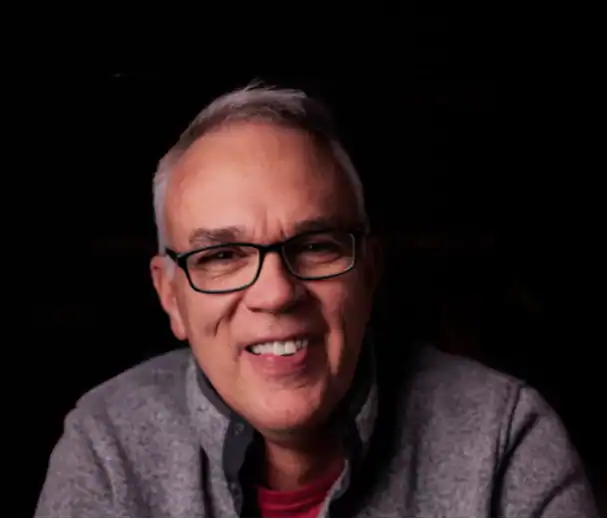The Dangers of the Christian Platform
Estimated reading time: 5 minutes
For the first twenty-five years of my ministry, I planted and pastored a church in obscurity. Yet even then, I could feel the temptations that came with being up front. Ten years ago, I left that ministry to pursue a new endeavor, helping parents pass the gospel to their children. This new ministry involved a shift from predominantly local pastoring to traveling and speaking at conferences.
As I’ve pursued this itinerant speaking ministry, I’ve monitored my heart, and I haven’t been happy with what I’ve sensed— pride, coveting, irritation, and a desire to use people for my advancement have all reappeared in my heart. I thought I’d slayed these sins when I matured as a pastor, but something about my new Christian platform amplified these wicked qualities again.
I love conferences. Those who teach can and should be honored (Matthew 5:19), and a time of special teaching can offer edification and joy to local congregations. But there are temptations that come from being up front as a regular speaker. When Jesus addressed the Pharisees, he rebuked them for their desire to be seen and honored by men (Matthew 23). What would he say to those of us who love being in the green room, staying for free at nice hotels, and having catered dinners backstage? How would he warn those who have an entourage of fans hanging on our words? What kingdom principles must those who are on the platform regularly or occasionally, be careful to remember?
The perks of itinerant ministry—especially in the evangelical West—can be intoxicating and dangerous, but several biblical principles can help those in parachurch ministries guard their hearts.
Five principles to guard our hearts
1. Jesus honors hidden ministry
In the Sermon on the Mount, Jesus praised hidden ministry that only the Father sees. He condemned religious actions displayed only for others’ praise (Matthew 6:1). When I have no audience, my motive is clear. I can see whether I’m living to please him, or not. When my religious activity will bring praise from others, my motives are less clear. Faithful pastoring demands much hidden ministry that is not reported on Twitter, Instagram, or at a conference. Platform ministry by its very nature is for all to see. The best ministry is the hidden ministry, known only to God.
2. Jesus honors ministry to those who can’t pay back.
True religion gives to those who can’t give back (Luke 14:13-14, James 1:27). It gives out of grace, unconditionally. Faithful pastoring ministers to whomever God puts in front of me. It is not a transactional ministry. The platform tempts me to use people to gain social media likes, book sales, and increased name recognition. Godly pastoring will involve equipping healthy sheep who will build up the church. But often, it also entails ministering to hurting sheep who cannot and will not pay back.
3. Jesus honors inconvenient ministry.
I find myself smiling when we lavish praise on the doctor who takes a week off for a missions trip or a businessman who donates a large sum of money. While happy for those things, I ask myself, “Was it costly to them?” Like the widow who gives a hidden amount, what matters to the Lord is not the amount of the gift but the sacrifice of the giver (Luke 21:4). Part of the bone-wearying work of pastoring is its death to comfort and control. Calls and texts from people who need assistance or attention can intrude at any time. Faithful pastoring involves many inconveniences; some types of platform ministry involve very few.
4. Jesus honors personal ministry.
Shepherds cannot shepherd from afar. Jesus knows his sheep by name and so do good shepherds. Jesus commends the personal interaction of believers living in community. In Matthew 25:31-40, he commends his followers when the sick and in prison were visited, the hungry were fed, and the stranger was welcomed. With more than 59 “one anothers” in the New Testament, Christ’s kingdom must involve close ministry. Pastoral ministry by its nature should be personal. It’s much harder to genuinely “one another” from the platform.
5. Jesus honors suffering in ministry.
Those who desire to live a godly life will suffer. Paul listed suffering as a mark of an apostle (2 Corinthians 11:23), and he wanted to know Christ in the fellowship of his suffering (Philippians 3:10). Faithful pastors have to endure numerous difficult people and situations. Where a platform ministry, with its chauffeured Yukons and crowd of listeners, can be the exact opposite. It tempts my pride and selfishness. Without suffering, a conference speaker is in danger of being seduced in ways that might never tempt the local pastor.
Thankfulness for Humble Servants
In my travels, I have come across many humble pastors and traveling speakers. I know of ministry leaders and professors who happily travel long distances, stay in Spartan accommodations, and speak to a small group of God’s beloved saints. I am thankful for them.
However, for those on the platform regularly or occasionally, we must remind ourselves that we are in a dangerous spot. As with Odysseus, the songs of the sirens will seek to seduce us; and we must tie ourselves to Christ, repenting as we walk through God’s call on our lives.
And, brother, if you are a faithful pastor ministering in relative obscurity, wait until the judgment day until you see the final accounting. It will be a time of the great reversal. I have no doubt that many a conference star will be laid low and many an obscure pastor will be exalted.
To press on, let’s ask ourselves and each other, “What have you done that was hidden, personal, inconvenient, and for someone who cannot pay you back?” This is the person the Lord honors. Many a spiritual neck has been broken by falling off the platform. I just don’t want it to be mine.
© 2025, Focus on the Family. All rights reserved.
About The Author

Chap Bettis
Chap Bettis is the executive director of The Disciple-Making Parent, a ministry devoted to equipping parents, grandparents, and church leaders to pass the gospel to their children and youth. He pastored for 25 years, and is the author of the book The Disciple-Making Parent.









